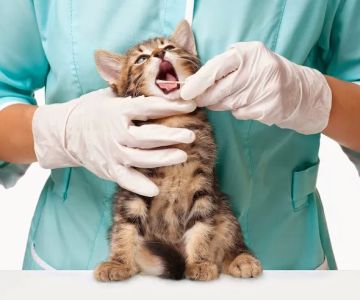- Understanding Picky Eater Cats
- Common Causes of Picky Eating in Cats
- Effective Strategies for Dealing with a Picky Eater Cat
- How to Choose the Right Food for a Picky Eater Cat
- When to See a Veterinarian About Your Cat’s Eating Habits
- Real-Life Case Study: A Picky Eater Cat Transformation
- Final Thoughts and Tips for Handling Picky Eater Cats
Understanding Picky Eater Cats
If you have a cat that refuses to eat the food you offer, you're not alone. Dealing with a picky eater cat is a common struggle for many pet owners. Cats are known for being independent and sometimes even finicky, and this extends to their eating habits. Some cats seem to turn their noses up at every meal, and as a pet owner, this can be both frustrating and concerning.
In this article, we’ll dive into the reasons behind picky eating in cats, and provide you with actionable tips to help encourage your feline friend to eat a balanced and nutritious diet. Whether you're dealing with a kitten who’s just learning to eat solids or an adult cat who has suddenly developed an aversion to certain foods, there are several steps you can take to resolve this issue.
Common Causes of Picky Eating in Cats
Before diving into solutions, it’s important to understand why your cat might be picky about their food. There are several potential causes for this behavior, and they can vary from one cat to another.
Health Issues
One of the primary reasons for picky eating in cats is health problems. Dental issues, gastrointestinal problems, or infections can make eating painful or uncomfortable for your cat. If your cat suddenly starts refusing food, it’s important to rule out any underlying health conditions by consulting your veterinarian. Cats are also known to hide pain, so subtle signs like eating less or avoiding certain types of food could be indicators of a medical issue.
Taste Preferences
Like people, cats can have personal taste preferences. They might be particularly sensitive to certain textures, flavors, or smells of food. For instance, some cats prefer wet food over dry food or have a distinct preference for particular protein sources, such as chicken or fish. Understanding these preferences can help you make the right choices when selecting food for your cat.
Environmental Stress
Stress can also affect your cat's appetite. Changes in their environment, such as a move to a new home, new pets, or even changes in their routine, can lead to a decrease in appetite. Cats are creatures of habit, and disruptions in their daily routine can cause them to feel anxious or unsettled, which can manifest as picky eating behavior.
Effective Strategies for Dealing with a Picky Eater Cat
Now that we have a better understanding of the potential causes of picky eating, let’s look at some practical strategies to encourage your cat to eat more consistently.
Establish a Routine
Cats thrive on routine, and feeding at the same time every day can help reduce their anxiety and encourage regular eating. Consistency in meal times gives your cat a sense of security, which can help them feel more comfortable eating. Try to avoid leaving food out all day as free-feeding can lead to a lack of structure and even make picky eating worse.
Experiment with Different Food Types
Sometimes the issue is that your cat is simply tired of the same food every day. Experiment with different flavors, textures, and brands of food to see if there’s one that your cat finds more appealing. Wet food, dry kibble, and even freeze-dried food can all offer different sensory experiences that might attract your cat’s interest. Try different protein sources such as chicken, turkey, or beef, or even consider rotating between different types of food to keep things interesting for your cat.
Make the Food More Appealing
Enhance the food’s appeal by warming it slightly (especially wet food) or adding a small amount of chicken broth (without onions or garlic) to make it more aromatic. Cats often find food more enticing when it’s slightly warmer, and the smell can be an important factor in piquing their interest. Additionally, some cats may prefer a smaller amount of food more frequently, so offering smaller portions throughout the day might work better than large meals.
Use Positive Reinforcement
When your cat does eat, make sure to praise them and offer them a little reward. Positive reinforcement can help create a positive association with eating. Avoid punishing or scolding your cat for not eating, as this can cause stress and further exacerbate the issue. Instead, create a calm and encouraging environment during meal times, and be patient as you work through their picky eating habits.
How to Choose the Right Food for a Picky Eater Cat
Choosing the right food for a picky eater cat is crucial to their health and well-being. When dealing with a picky eater, it’s important to consider both the nutritional needs and the palatability of the food. Look for high-quality brands that offer complete and balanced nutrition. Additionally, make sure the food you choose is appropriate for your cat’s age, health, and activity level.
In some cases, cats with picky eating habits may benefit from prescription diets designed to be more palatable or easier to digest. Consulting your veterinarian about the best food for your cat can also provide valuable insight. If your cat has any underlying health issues contributing to their pickiness, your veterinarian can recommend specific foods that meet their dietary needs.
When to See a Veterinarian About Your Cat’s Eating Habits
If your cat’s picky eating behavior persists for an extended period of time or if they are showing signs of weight loss, lethargy, or other concerning symptoms, it’s essential to see a veterinarian. Picky eating can sometimes be a symptom of an underlying medical issue that requires treatment.
Your veterinarian will conduct a thorough examination to rule out conditions like dental problems, gastrointestinal disorders, or systemic illnesses that could be causing your cat to refuse food. Once a diagnosis is made, they can work with you to develop a treatment plan that addresses both the medical condition and the picky eating behavior.
Real-Life Case Study: A Picky Eater Cat Transformation
Let me share a real-life example of how addressing a cat’s picky eating habits can lead to positive results. A friend of mine adopted a 5-year-old cat named Leo, who had a long history of picky eating. Initially, Leo would only eat a very specific brand of food and would often go days without eating anything if he didn’t get what he wanted.
After a few months of struggling with his eating habits, my friend took Leo to a veterinarian. It turned out that Leo had some dental issues that made chewing difficult and painful. After a dental cleaning and switching to wet food that was easier to chew, Leo’s eating habits improved drastically. He became much more enthusiastic about his meals, and my friend was able to introduce new flavors and textures without as much resistance.
Final Thoughts and Tips for Handling Picky Eater Cats
Dealing with a picky eater cat can be frustrating, but with patience and the right strategies, it’s possible to encourage better eating habits. Start by ruling out health issues, and then experiment with different types of food, feeding routines, and positive reinforcement. Most importantly, remember to be patient with your cat as you work through their picky eating habits.
If you're struggling with a picky eater cat and need professional help or advice, consider consulting a veterinarian at Hidden Brook Veterinary. They can help diagnose any underlying health conditions and offer tailored solutions to help your cat develop healthier eating habits.
SEO Title: Dealing with a Picky Eater Cat: Tips and Solutions for Pet Owners
SEO Keywords: dealing with a picky eater cat, cat picky eating tips, how to get your cat to eat, picky cat eating habits, feeding picky cats, feline eating problems
SEO Description: Struggling with a picky eater cat? Learn how to deal with your cat's eating habits and encourage healthy eating with expert tips and solutions. Consult Hidden Brook Veterinary for tailored advice on picky eater cats.











